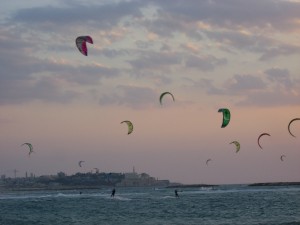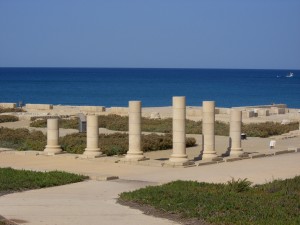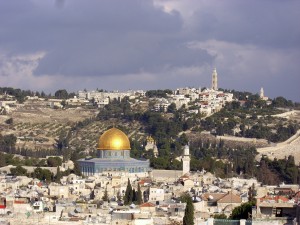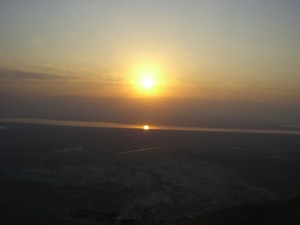In 2008, hubby and I went to Israel. Stunning and stressful, inspiring and frightening, the country showed its many sides to us as we explored it in our rental car. When I came home, I wanted to write about it, but how? Nothing I tried to write did justice to the experience.
Author Martin Fletcher, who walked the western coast of Israel the same year we were there, has written the stories that I couldn’t write in Walking Israel: A Personal Search for the Soul of a Nation. A longtime journalist, Fletcher had covered many battles and skirmishes throughout the country. He felt that he was missing something, and walked the western coast of Israel in search of the “real” Israel. Along the way he interviews Jews, Israeli Arabs, soldiers, and more.

As Fletcher hikes along the coast, my own memories come flooding back. In one example, he writes about Acre, with its medieval walls, where Jews and Arabs live peacefully, for the most part. Just before our visit, though, some violence erupted when an Arab drove his car into a Jewish neighborhood on Yom Kippur (the holiest day of the Jewish calendar). As with all things Israeli, however, it’s complicated, and hubby and I had a nice visit in Acre despite the violence just a week before. Fletcher reflects on this incident, though it occurred several months after his walk, and notes how challenging it is to separate politics from daily life in Israel.
When Fletcher describes the northern town of Nahariyya, I remember meeting my first former Israeli soldier: a pretty waitress in a local cafe. Slim and slight, she recalled doing her military service when Lebanon was bombing Nahariyya in 2006. My stepson was in Israel that year, and we feared for his safety, but his group leaders moved them further south out of harm’s way. I realized again what should be obvious: no matter how intimidating or powerful, many armies are made up of young, fresh-faced kids just starting their lives.


There were so many contradictions and contrasts, too many to describe here. I am grateful to Fletcher for his ability to present them so clearly.
Fletcher doesn’t try to draw conclusions. His reviews are mixed because he hasn’t chosen one side or the other, but that’s why I appreciate it. It’s confusing and complex, and Fletcher doesn’t make it less so. He does, however, show the fascinating and frustrating land of Israel in a way that made me nod my head and say, “Yes, yes, that’s it. That’s what I couldn’t find the words to say.”
